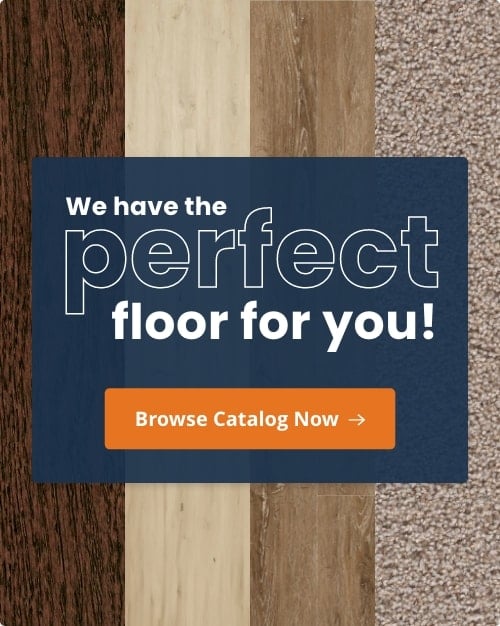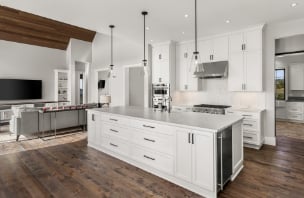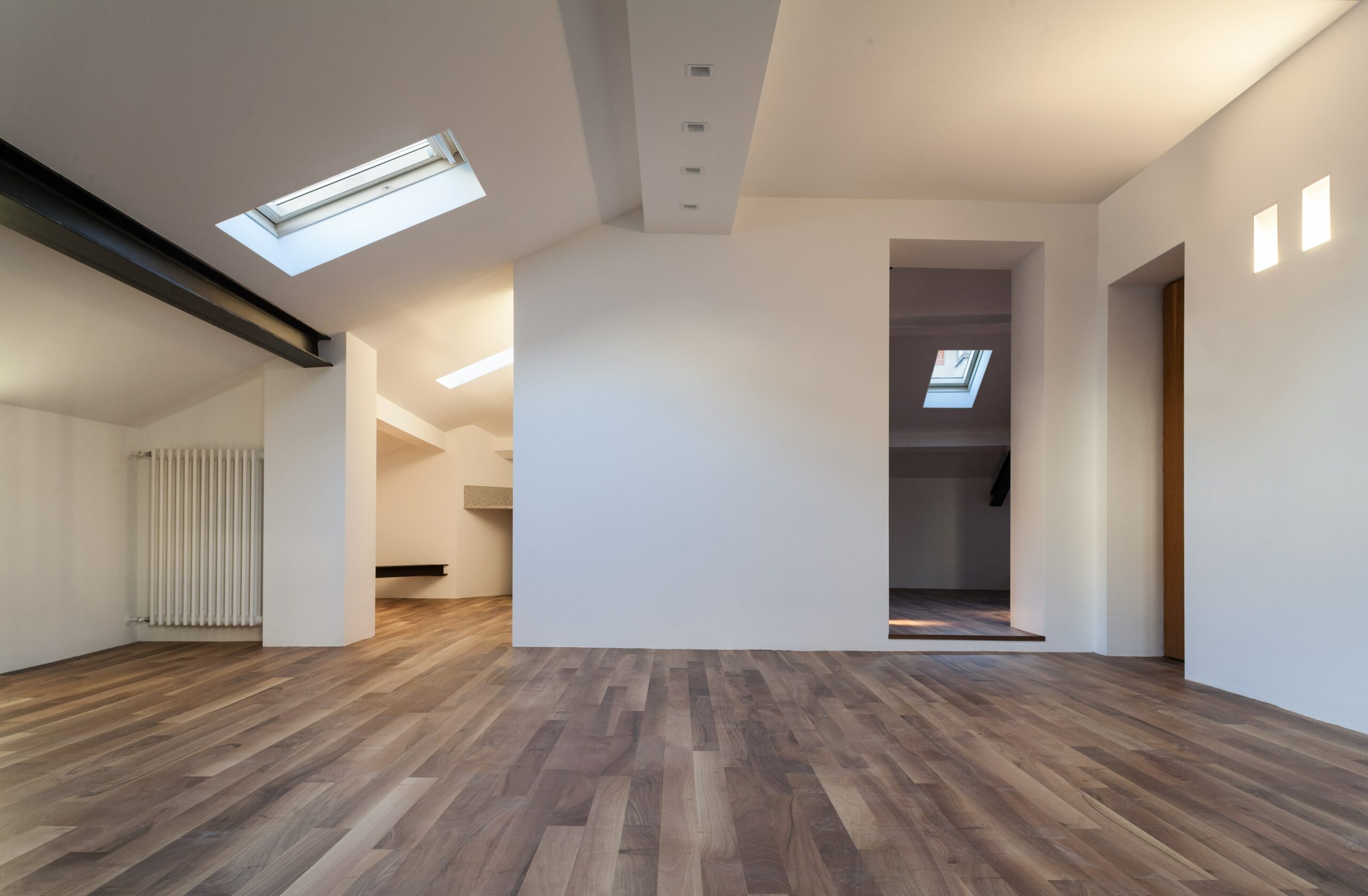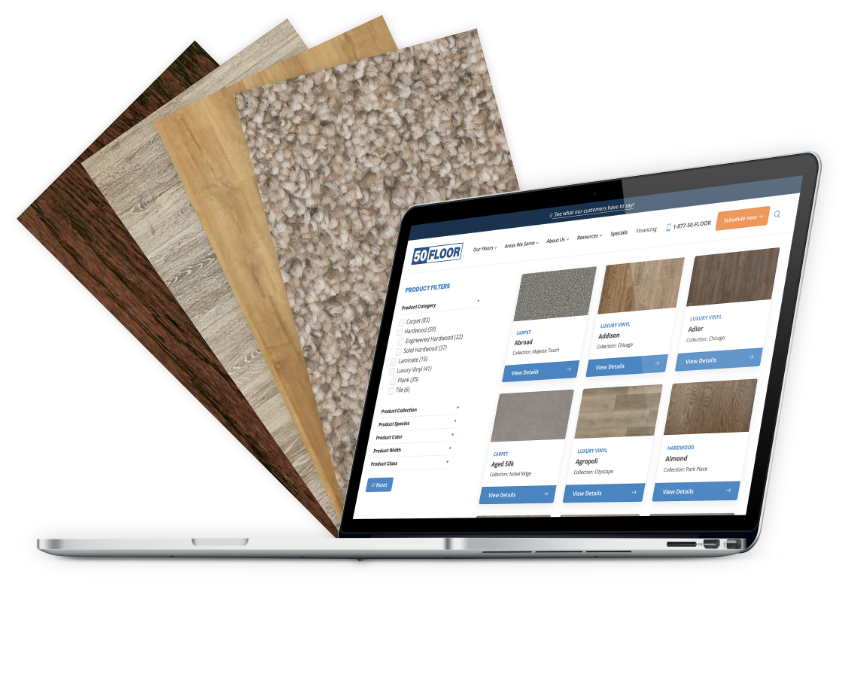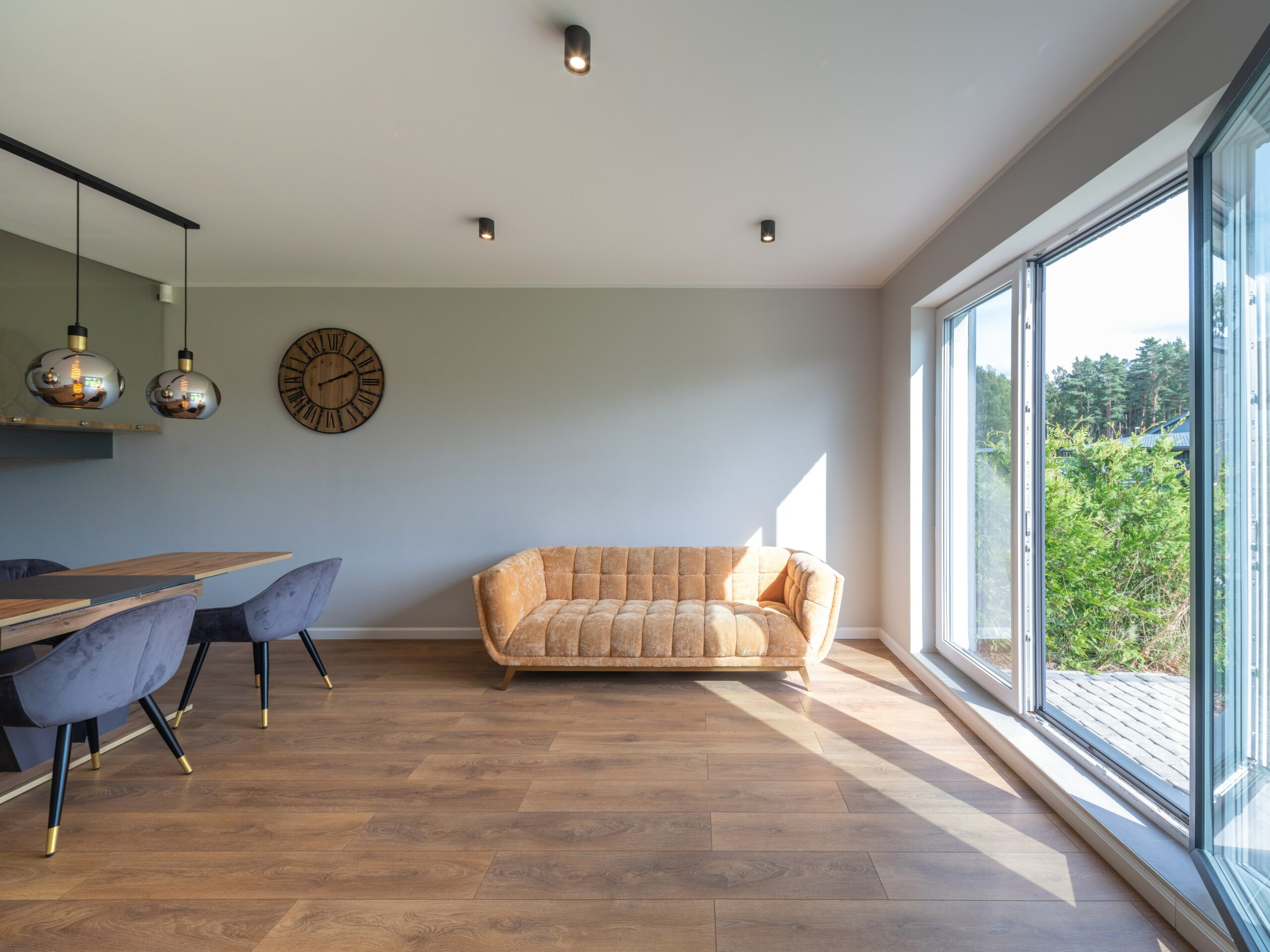Why settle for less when you can have the best engineered hardwood for your living rooms? Engineered hardwood combines durability, style options, and ease of maintenance, making it one of the top choices for enhancing your home.
With its layered construction, engineered hardwood offers the beauty of natural wood without the high susceptibility to warping or damage, ensuring your floors remain stunning for years to come.
This page will help you find the best engineered hardwood for your living room that reflects any style.


What to Look for in Engineered Hardwood for Living Rooms
Durability
From family gatherings to casual evenings, your living room sees a lot of foot traffic. A durable engineered hardwood floor can handle this constant use without showing premature wear and tear.
Engineered hardwood, designed with multiple layers, offers more stability than solid wood. This structure makes it a suitable flooring option for areas with high activity. It resists warping and buckling, which are common issues in less sturdy floors.
Resistance to Srcatches
Pets, kids playing, and even moving furniture can leave unsightly marks on softer woods or finishes without adequate protection.
Manufacturers often apply special coatings to engineered hardwood to enhance its resistance to scratches. Always check the hardness rating of the wood species and the type of finish used.


Resistance to Moisture
While living rooms aren’t as exposed to moisture as kitchens or bathrooms, spills happen. Choose engineered hardwood that is moisture-resistant. This type of flooring often comes with treatments or coatings that repel water, reducing the risk of damage from accidental spills.
Engineered hardwood’s layered construction also plays a part in its moisture resistance. The layers provide a barrier against humidity changes, making it more adaptable to different environments than solid wood. This makes it an alternative flooring option for homes in varying climates.


Top Wood Species for Engineered Hardwood


Oak Flooring
Oak’s timelessness and durability are favorites among many homeowners. It’s natural grain is also versatile and can complement both modern and traditional interiors. With proper care, these floors can last for years.
Maple Floors
Maple has a smooth grain that gives any room a clean and refined appearance. Beyond its visual appeal, maple’s strength makes it suitable for areas that receive a lot of foot traffic (living rooms as well as kitchens and porches).
Maple floors can also lighten up any room with their naturally light color tones, giving off a sense of spaciousness and calmness.
Hickory
If you have pets or your living room sees heavy use, hickory might be your best choice. It’s one of the hardest woods available, making it resilient to scratches and dents.
Hickory’s varied grain patterns also add character to your living room, creating a unique and inviting atmosphere.
Walnut Flooring
Walnut flooring is an ideal choice for those looking for an elegant and sophisticated look. Its rich, dark tones provide a luxurious feel to any living room. Though slightly softer than oak or hickory, walnut’s deep color can hide minor blemishes well, keeping your floors looking pristine.
Engineered Hardwood Finishes and Textures for Living Rooms
| Finish/Texture | Appearance | Best For | Maintenance |
| Matte | Modern, understated look with low sheen, hides scratches and imperfections well | High-traffic areas, contemporary spaces | Low maintenance, hides wear and tear |
| Glossy | Sleek, elegant look, reflects light to enhance wood grain but shows scratches and dust easily | Spacious, luxurious living rooms, elegant designs | Requires more maintenance to keep a pristine look |
| Hand-Scraped | Rustic charm with unique grooves, hides minor dents and scratches | Homes with pets or children, cozy and lived-in designs | Low maintenance, conceals minor damage |
| Smooth | Classic, clean look, highlights natural beauty but shows imperfections over time | Modern to traditional interiors, clean and simple designs | Easy to clean, but more prone to visible imperfections |
Plank Width and Length Considerations
Wide Planks
Wide planks can dramatically affect the look of your living room. They create a sense of openness and bring a modern flair to the space. They also make the floor layout appear less busy. This is because there are fewer seams.
Wide planks might not fit every style. In traditional homes, they could clash with the existing decor. They can be more expensive than their more narrow counterparts due to the higher amount of material used.
Narrow Planks
Narrow planks can complement almost any decor style. This option is ideal if you’re looking for a more intricate or traditional aesthetic in your living room.


Long Planks
Long planks have become popular for their ability to enhance the visual flow of a space. They lead the eye along their length, making rooms appear longer or wider depending on their orientation.
Longer planks also mean fewer end joints across the floor. Installation might be a bit more challenging with long planks due to their size. Our installers at 50Floor can assess your space to ensure these longer pieces will fit well without excessive cutting.
Short Planks
Short planks can be mixed and matched to create unique patterns and designs on your floor, offering flexibility in customization. But short planks can result in a busier appearance due to the increased number of joints. This might distract from other elements in your living room or make the space feel smaller.


Best Engineered Hardwood Colors for Living Room


Light Tones
These shades make rooms appear larger and brighter. Lighter shades also provide a neutral backdrop, allowing furniture and decor to stand out.
In homes where natural light is abundant, light floors can amplify this advantage, creating an airy feel. Light floors might show dirt and scratches more easily than darker tones. Regular maintenance can keep them looking pristine.
Dark Tones
Dark-toned engineered hardwood adds richness and warmth to your living room. It’s perfect for creating a cozy atmosphere or a dramatic statement.
Dark floors are good at hiding stains but can make rooms look smaller. Pairing them with light-colored walls and ample lighting can counteract this effect. Dark tones’ timeless appeal makes them a popular choice among homeowners in terms of style and design.
Neutral Tones
Neutral-colored (ranging from beige to gray) engineered hardwood offers flexibility in decorating and styling your living room. They blend seamlessly with any decor theme, making them an excellent choice for those who frequently update their home’s look.
Why Engineered Hardwood is Ideal for Living Rooms
Can Stand Wear and Tear
With proper care, engineered hardwood can last for decades. Investing in engineered wood flooring not only enhances your space but also adds value to your home over time.
Engineered floors are designed to resist changes in humidity and temperature, which means they’re less likely to warp or buckle compared to solid hardwood.


Comfort and Warmth
The natural insulating properties of engineered hardwood make it an ideal choice for creating a warm and inviting atmosphere in your living room.
Its ability to retain heat provides a comfortable surface underfoot, especially during colder months. This feature sets engineered hardwood apart from options like tile, which can feel cold and unwelcoming by comparison.
Easy Maintenance
Engineered hardwood requires minimal effort to keep clean; regular sweeping and occasional mopping with a wood cleaner will maintain its look. This ease of maintenance helps preserve the floor’s integrity and appearance over time, ensuring your living room remains a beautiful focal point of your home.


Cost Considerations
Price Range
The total cost of engineered hardwood for your living room can vary. Typically, the price reflects the quality, features, and eco-friendliness of the materials used.
Prices might start at a reasonable rate for basic models. These are suitable if you want to save a bit without compromising too much on quality.
On the higher end, engineered hardwood can command a premium, especially if it boasts superior stability, unique designs, or is made using an intricate construction process.
Budget-Friendly Options
You have several affordable choices that do not skimp on quality. Some engineered hardwood floors are designed with cost in mind but still maintain good stability and appearance.
Look for products that offer a balance between price and performance. Manufacturers often use a compression process that enhances durability while keeping costs down. This means you can enjoy the benefits of engineered hardwood in your living room without breaking the bank.


Installation Tips
Hiring a Professional
But the longevity and performance of your engineered hardwood heavily depend on how well it’s installed. Professional installers such as 50Floor bring experience and precision to the table, ensuring each plank fits perfectly.
They understand the unique features of different types of engineered hardwood, from thermal treatment processes to wear layers.
This knowledge helps avoid costly mistakes that could affect your floor’s durability and appearance. If you’re not experienced in flooring installation, consider the value a professional can add, not just in labor but in peace of mind.
Warranty Considerations
Your engineered hardwood’s warranty is as important as its aesthetic appeal and durability. Manufacturers often offer different levels of protection, covering aspects from wear to structural integrity.
Review warranty terms closely before installation. This ensures you don’t accidentally forfeit protection due to an oversight in installation technique or floor care.


